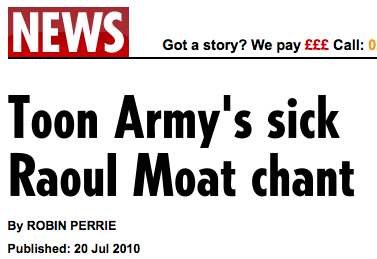August 14, 2010
Too wired to concentrate

The cover of the Czech edition of Capitalist Realism - thanks to Michal Rybka for arranging the translation
I was pleased and surprised to see Capitalist Realism mentioned in Fabio Gironi's excellent introductory essay in the Speculations journal, Science-Laden Theory: Outlines of an Unsettled Alliance. I think that Fabio's piece will soon become the first stop for people who want to get a handle on speculative realism. I would, however, like to take up a point that Fabio makes in the footnotes - not for the sake of quibbling, but because it will allow me to clarify and extend claims that might have been ambiguous or underdeveloped. Fabio writes:
- Fisher goes as far as suggesting that the structure of the internet essentially recalls the plasticity of capitalism, since capitalist reality ‘is akin to the multiplicity of options available on a digital document, where no decision is final, revisions are always possible, and any previous moment can be recalled at any time’ (Ibid., 54). I think that this parallel casts an unfairly gloomy light on an instrument—the Internet—whose open structure has certainly engendered new phenomena of digital indifferent individualism, but that presents no inherent connivance with capitalist rule, and that in fact can as well be one of the main mediators for the formation of that new kind of political agency that Fisher calls for.
I absolutely agree with the last point. I certainly wasn't meaning to suggest an absolute fit between capitalism and the internet, or anything of that sort; indeed I don't mention the internet at all in the passage that Fabio cites. I was thinking more of word processing or Photoshop than the internet, actually. Clearly, the relationship between these infinitely revisable forms and the control techniques of indefinite postponement that I describe in Capitalist Realism is more than analogous. I meant the emphasis to be on capitalism's reliance on/ homology with the digital rather than on any inherent tendency in digitality "towards" capitalism. At the same time, I do think that the kind of critique that Jodi Dean has made of communicative capitalism is absolutely crucial. If ever there was a case for something being appraised "dialectically", then the internet is it. But at this point, I think we need to talk about cyberspace rather than just the internet. Technology such as smart phones mean that, increasingly, we are not "using the internet" so much as we are inside the total environment of cyberspace.
Earlier in the same note, Fabio refers to my claims that the young in particular are "too wired to concentrate" and that "[t]he consequence of being hooked into the entertainment matrix is twitchy, agitated interpassivity, an inability to concentrate or focus." Aptly enough, with the Accelerationism event coming up, the phrase "too wired to concentrate" comes from Nick Land's great piece "Cybergothic". "Wired" here, evidently, means connected as well as hyped up. In writing those passages, I had one eye on Foucault (or Deleuze's reconstruction of Foucault in the "Societies of Control" essay) and the other on McLuhan. Being "too wired to concentrate" is not inherently a problem; indeed, in many contexts outside the classroom is often an advantage. But such attentional dispersion is a problem when it is inserted into the old concentrational-disciplinary system, where it is massively dysfunctional. Many of the current and upcoming crises of education will turn on this mismatch, and there's a class dimension here. I suspect that literate students are likely to gain even more advantages in the future, as literacy becomes an ever rarer skill. Many A-level students and many university students I've taught don't read - they scan text via screens, which is a very different thing. Screen culture is connective, not reflective.
The "twitchy, agitated interpassivity" I describe - from which I'm far from being exempt myself - it is what Linda Stone calls "continuous partial attention" It's not a simple matter of opposing pleasure to duty. As digital addicts we are much like Matt Dillon's junkie in Drugstore Cowboy, "working harder than a construction worker on overtime". The constant craving to be connected, or to click through to the next link, or to check to see if mail has arrived, is intensely demanding: cyberspace is a hard taskmaster, and one that is never satisfied (and which, similarly, leaves us feeling dissatisfied any drained). Increasingly, I find reading books to be a refuge from digital twitch, and, in that way, more enjoyable - than ever. (That's one reason that I greet the rise of ebooks with something of a shudder.)
It's worth citing Stone on continuous partial attention at some length here:
- With cpa, we feel most alive when we’re connected, plugged in, and in the know. We constantly SCAN for opportunities – activities or people – in any given moment. With every opportunity we ask, “What can I gain here?”
... Continuous partial attention is an always on, anywhere, anytime, any place behavior that creates an artificial sense of crisis. We are always in high alert. We are demanding multiple cognitively complex actions from ourselves. We are reaching to keep a top priority in focus, while, at the same time, scanning the periphery to see if we are missing other opportunities. If we are, our very fickle attention shifts focus. What’s ringing? Who is it? How many emails? What’s on my list? What time is it in Bangalore?
In this state of always-on crisis, our adrenalized “fight or flight” mechanism kicks in. This is great when we’re being chased by tigers. How many of those 500 emails a day is a TIGER? How many are flies? Is everything an emergency? Our way of using the current set of technologies would have us believe it is.
Over the last twenty years, we have become expert at continuous partial attention and we have pushed ourselves to an extreme that I call, continuous continuous partial attention. There are times when cpa is the best attention strategy for what we’re doing; and, in small doses, continuous partial attention serves us well. There are times when cpa and ccpa compromises us.
The “shadow side” of cpa is over-stimulation and lack of fulfillment. The latest, greatest powerful technologies are now contributing to our feeling increasingly powerless. Researchers are beginning to tell us that we may actually be doing tasks more slowly and poorly.
And that’s not all. We have more attention-related and stress-related diseases than ever before. Continuous continuous partial attention and the fight or flight response associated with it, can set off a cascade of stress hormones, starting with norepinephrin and its companion, cortisol. As a hormone, cortisol is a universal donor. It can attach to any receptor site. As a result, dopamine and seratonin –the hormones that help us feel calm and happy – have nowhere to go because cortisol has taken up the available spaces. The abundance of cortisol in our systems has contributed to our turning to pharmaceuticals to calm us down and help us sleep.
This last point recalls one student I taught whose father told me in despair that he had to turn off the electricity at night in order to get her to go to sleep.
I know that I would be more productive (and less twitchily dissatisfied) if I could partially withdraw from cyberspace , where much of my activitity - or rather interpassivity - involves opening up multiple windows and pathetically cycling through twitter and email for updates, like a lab rat waiting for another hit. (The rat analogy is not idle: there's an argument that rats become more quickly addicted when they are given stimuli randomly; email is similarly random, sometimes providing massive satisfaction, often thin pickings.) The same goes for politics - a politics entirely contained within cyberspace would be locked into its interpassive circuits; but a politics that cannot make cyberspace one of its crucial terrains would be useless.
August 13, 2010
Accelerationism full blurb
- But which is the revolutionary path? Is there one? – To withdraw from the world market, as Samir Amin advises Third World Countries to do, in a curious revival of the fascist "economic solution"? Or might it be to go in the opposite direction? To go further still, that is, in the movement of the market, of decoding and deterritorialization? For perhaps the flows are not yet deterritorialized enough, not decoded enough, from the viewpoint of a theory and practice of a highly schizophrenic character. Not to withdraw from the process, but to go further, to "accelerate the process," as Nietzsche put it: in this matter, the truth is that we haven't seen anything yet
- – Gilles Deleuze and Felix Guattari, Anti-Oedipus
- The English unemployed did not have to become workers to survive, they – hang on tight and spit on me – enjoyed the hysterical, masochistic, whatever exhaustion it was of hanging on in the mines, in the foundries, in the factories, in hell, they enjoyed it, enjoyed the mad destruction of their organic body which was indeed imposed upon them, they enjoyed the decomposition of their personal identity, the identity that the peasant tradition had constructed for them, enjoyed the dissolutions of their families and villages, and enjoyed the new monstrous anonymity of the suburbs and the pubs in morning and evening.
- – Jean-Francois Lyotard Libidinal Economy
- Machinic revolution must therefore go in the opposite direction to socialistic regulation; pressing towards ever more uninhibited marketization of the processes that are tearing down the social field, “still further” with “the movement of the market, of decoding and deterritorialization” and “one can never go far enough in the direction of deterritorialization: you haven’t seen anything yet”.
- – Nick Land, “Machinic Desire”
In the early 1970s, post-68 French thinkers such as Deleuze and Guattari and Lyotard made the heretical suggestion that capital should not be resisted but accelerated. Deplored, repudiated then forgotten, this remarkable moment was returned to only in the UK during the 1990s, in the theory-fiction of Nick Land, Iain Hamilton Grant, Sadie Plant and the Cybernetic Culture Research Unit. Drawing upon Fernand Braudel, Manuel DeLanda, and cyber-theory, 90s accelerationism drew a distinction between markets (as bottom-up self-organising networks) and capital (an oligarchic and predatory system of control). Was accelerationism merely a new cybernetic mask for neoliberalism? Or does the call to “accelerate the process” mark out a political position that has never been properly developed, and which still has a potential to reinvigorate the left?
This one-day symposium will think through the implications of accelerationism in the light of the forthcoming publication of Nick Land’s Fanged Noumena: Collected Writings 1987-2007 and Benjamin Noys’s The Persistence of the Negative.
Speakers:
Ray Brassier – co-editor with Robin Mackay of Nick Land's Fanged Noumena: Collected Writings 1987-2007 (2010)
Mark Fisher – author of k-punk blog and a founder member of the Cybernetic Culture Research Unit
Robin Mackay – philosopher, director of Urbanomic, editor of Collapse
Benjamin Noys – author of The Persistence of the Negative (2010), blogs at No Useless Leniency
Nick Srnicek – author of Speculative Heresy blog, PhD candidate at LSE, and is working with Alex Williams on a book critiquing folk politics
Alex Williams – working on a book on accelerationism, blogs at Splintering Bone Ashes
Room RHB 256
Goldsmiths, University of London
13:00-17:00, 14th September 2010
Our comrades in the North
1:

Owen on the demolition of the Trinity Square car park ...
- Trinity Square failed to be sufficiently boring. That's not the case with its mooted replacement – a Tesco store with student flats on top, clad in as many materials as possible so as not to offend, concrete-framed but avoiding the dreaded faux pas of showing the material. Rodney Gordon claimed "architecture should appeal to the emotions. It should give you that feeling from your balls to your throat". With this demolition, we're exchanging architecture as a physical experience for buildings as a mute, grinning, lobotomised accompaniment to consumerism.
2:

Superb post on Raoul Moat and folk-opposition on excellent new football blog Mole on The Wall:
- It is becoming increasingly apparent that football is the battleground on which many of the most vital political and cultural debates of the next few years will take place. Indeed, the growing popular discontent with the Premier League and the F.A. might represent first signs of a thaw in the neoliberal winter, the first chinks in the armour of an adversary hitherto regarded as unbeatable.
- ... the whole narrative underlines the sheer depth of oppositional feeling in places like the north east to a London-centric nexus that is now, once again, unequivocally Conservative, hard-line, unsympathetic, given to scapegoating individuals, and wholly unapologetic about launching explicit attacks on entire localities like Northumbria and Northern Ireland.
Patrick Butler in The Guardian:
- How does a local authority go about making a 30% cut to its budget over three years, and what are the consequences? Sheffield Indy Media, a citizen reporter organisation, alerted me to this podcast of a talk given by Martin Kimber, chief executive of Rotherham borough council to local charity leaders in south Yorkshire last month.
- There are three particularly interesting parts to it: the insight it gives into the massive upheavals to come; the huge effect this will have on the culture of a "paternalistic" Labour-run council and what it means for its workers; and the implications for the local voluntary sector.
- The changes have come rapidly. As Kimber says in the preamble to his talk:
- "Doesn't the world seem a different place? The last three months feels like three years."
- Kimber proceeds to explain how in the next three years public spending cuts will impact on the council and the local community. The national in-year cuts announced in June, he says have already hit: £6m trimmed from in revenue funding, £3m from capital funding, and £100m of Building Schools for the Future capital finance lost. By 2014, its spending power will be just 70% of what it is now (currently around £250m, excluding its schools budget).
- This means big changes, which I've corralled together in the following three points:
1./ The council will protect "services for the most vulnerable" - and not "organisations or structures," says Kimber. This suggests that the council will provide less services in-house, contract out more, and employ fewer people.
2./ Its longstanding "culture of paternalism" towards its employees, the idea that it has a duty to provide secure employment for local people (which developed in the 1980s as a response to the hollowing out of south Yorkshire's coal and steel industries) is coming to an end.
3./ It will simply stop providing some "non-core" services, particularly if it believes those services might be self-supporting. "The communities that can help themselves, will help themselves," says Kimber.
- Now for the obviously controversial bit. In the question and answer session he refers to his staff who resist the changes as "terrorists". Asked whether his staff are prepared for the changes he points out that in his council, as in every organisation there are employees who embrace change, those who accept it passively, and those he says, who reject it. He calls this third group, with an unfortunate turn of phrase, as:
- "The terrorists, the resisters."
Optimistic Melancholia
In his debut post on Found Objects, Jon Brooks of the Advisory Circle associates the graphics and music of the BBC's Continuing Education programming with what he calls "optimistic melancholia". It's this "optimistic melancholia" that Jon's own music captures to an often painful degree. In my review of the Revised Edition of The Advisory Circle's Mind How You Go I wrote:
- Brooks’s analogue synthesizer doodles – all the more powerful, somehow, for their unassuming slightness – gently trigger drifts down (false) memory lanes, inducing you to recall a mass mediated past which you never quite experienced . Mind How You Go frequently invokes that talisman of 1970s paternalism, the public information film, and it’s perhaps no accident that the rise of Ghost Box has coincided with the emergence of YouTube, which has made public information films and other such street furniture of 1970s audio-visual experience widely available again.
- What Brooks captures here extremely poignantly is the conflicted cluster of emotions involved in nostalgic longing . “Mind How You Go” and “Nuclear Substation” summon remembered sunlight from childhood summers even as their doleful melodies are laced with a deep sense of loss. Yet there’s a very definite but subdued joy here, too, in the way that a track such as “Osprey” achieves a kind of faltering soaring. It’s not for nothing that the word ache is often associated with nostalgia; and The Advisory Circle’s music positively aches with a sadness that is simultaneously painful and enjoyable.
(There's something of the same sunlit yearning at work in Christopher Priest's A Dream Of Wessex - which, incidentally, I believe is the ur-text for Nolan's Inception.)
This notion of "optimistic melancholia" has a resonance just now, precisely because it's so alien to today's affective regime, to the relentless positivity that Ivor Southwood identifies as central to the sell-yourself culture. Even as it attempts to photoshop out all negativity, this mandatory positivity is only the other side to capitalist realism's hedonic depression. If nothing else, optimistic melancholia reminds us of a culture with a wider emotional bandwidth.
(Make sure you check out Jon's download-only label, too.)
August 11, 2010
Work and shame
Reader Phil responds to the work posts:
- I had the same feelings about work, and had a couple of long periods of unemployment when I left university in the 1990's, but what amazes me in hindsight is how most of the people I studied with, and even members of my own family (FFS) seemed to intuitively understand, with no prior experience themselves, that the adverts were bullshit and the interview experience was, as you say, a ritualised process. It is one of the most baffling aspects of my life that people who are no more intelligent than me, no more experienced in the life process, and are in many other cases less able to analyse how processes work, seem to just know how things are done. It's started to make me wonder if there really is anything to this reincarnation lark, and people like you and I are simply in our first incarnation and are therefore fresh to all the tricks that all these older bodies seem to know intuitively. I'm only half-joking about this, btw.
The other aspect I would mention is your feelings of shame of not feeling capable of doing work. Are you sure about this? Looking back at my own experience, this was a partial source of shame, but the other aspect was I didn't want to experience the more personal shame of pretending to be something I wasn't i.e. accepting the ritualised process would have been at least as shameful as the shame of not having work in the first place. It seems to me there are three sources of shame - the shame of compromising to obtain work, the shame of being "found out" if you turn out not to be good enough, and the shame of not having work because you don't want to risk the two aforementioned sources of shame.
To conclude I'm not entirely convinced that the reasons behind my own problems had their root in class/social phenomena, because my own brother sailed into a high-flying job having had exactly the same upbringing as me, but what I would say is that the system seems to be increasingly set up to favour those who are missing something (primarily a sense of conscience, but also humility, a sense of proportion, compassion etc.). This is kind of why I take Piers Morgan as the epitome of our age - a man whose success relies almost entirely on his shallowness, and why success should be redefined as not the result of something people have (talent, wisdom etc.) but what they don't have.
He adds:
- The only final thing I would add is, looking back from my current more stable position, what annoys me most is not the system so much as my sheer naivety in believing in it. It's the years of wasteful self-doubt, where all it would have taken is for someone to put their arm around me and say, "Phil, you do realise this is bollocks, don't you?", or for me myself to think, "well, they sound sincere, but as this is the Xth time I've gone through this experience, there really must be something fundamental I'm not getting...."
"Dialectical history in its most refined form"
Ben has some more accelerationist reading. (Does anyone read Neuromancer any more? Presumably Christopher Nolan does: consensual hallucinations, catatonic bodies, collapsing virtual worlds, men tempted by the simulated image of their dead lovers ... perhaps Inception was the film that got made instead of the many times stalled Neuromancer project. On which, this is great from Joshua Clover:
- The story’s displacement of crisis and transformation into science-fictional allegory is too visible: not enough blind spot for our moment’s hysterical
looking-via-looking away. But more pungently, it’s endlessly telling that the film should founder in this exact moment: when the very developments it required—that is, the dematerializing and virtualizing of the physical movie set, of the scene of real labor—have blown up the economy and worse, pushing us toward another transformation, a far greater crisis. This is dialectical history in its most refined form.
Nice post from Ben on Derrida too. A traversed Derrida, or Derrida as interlocutor and (vanishing) mediator, fine ... Derrida as high priest: no thanks ...
August 08, 2010
Deconstruction as pathology
The infinite debt of scholarship - thanks for James Trafford for the link
- When a philosopher nowadays makes known that he is not a skeptic—I hope that has been gathered from the foregoing description of the objective spirit?—people all hear it impatiently; they regard him on that account with some apprehension, they would like to ask so many, many questions . . . indeed among timid hearers, of whom there are now so many, he is henceforth said to be dangerous. With his repudiation of skepticism, it seems to them as if they heard some evil- threatening sound in the distance, as if a new kind of explosive were being tried somewhere, a dynamite of the spirit, perhaps a newly discovered Russian NIHILINE, a pessimism BONAE VOLUNTATIS, that not only denies, means denial, but-dreadful thought! PRACTISES denial. Against this kind of “good-will"—a will to the veritable, actual negation of life—there is, as is generally acknowledged nowadays, no better soporific and sedative than skepticism, the mild, pleasing, lulling poppy of skepticism; and Hamlet himself is now prescribed by the doctors of the day as an antidote to the “spirit,” and its underground noises. “Are not our ears already full of bad sounds?” say the skeptics, as lovers of repose, and almost as a kind of safety police; “this subterranean Nay is terrible! Be still, ye pessimistic moles!" The skeptic, in effect, that delicate creature, is far too easily frightened; his conscience is schooled so as to start at every Nay, and even at that sharp, decided Yea, and feels something like a bite thereby. Yea! and Nay!—they seem to him opposed to morality; he loves, on the contrary, to make a festival to his virtue by a noble aloofness, while perhaps he says with Montaigne: “What do I know?” Or with Socrates: “I know that I know nothing.” Or: “Here I do not trust myself, no door is open to me.” Or: “Even if the door were open, why should I enter immediately?” Or: “What is the use of any hasty hypotheses? It might quite well be in good taste to make no hypotheses at all. Are you absolutely obliged to straighten at once what is crooked? to stuff every hole with some kind of oakum? Is there not time enough for that? Has not the time leisure? Oh, ye demons, can ye not at all WAIT? The uncertain also has its charms, the Sphinx, too, is a Circe, and Circe, too, was a philosopher."—Thus does a skeptic console himself; and in truth he needs some consolation. For skepticism is the most spiritual expression of a certain many-sided physiological temperament, which in ordinary language is called nervous debility and sickliness.
- Nietzshce, Beyond Good and Evil
I'm loath to come in on the Derrida debate, after already allowing myself to be drawn into it on Twitter. But I do think that there are important issues in play here ....
I should preface this with the inevitable disclaimer: clearly, I regard some of Derrida's ideas as important, and I'm pleased to have them in my conceptual armoury. However, I think a hostility towards deconstruction is justfied on at least two grounds.
1. The textualism When people are refuting the claim that Derrida "reduces the world to text", I think they are confusing two things. What is being attributed to Derrida by his opponents is not an ontological claim (the world is nothing but text) but a methodological tendency (he always treated everything he wrote about as if it were a text). For me, Graham's point about Derrida's always writing about books and texts is devastating. Throw any subject at Derrida, and he would give back to you a textual/ tropological analysis. To pose the question of whether Derrida was a realist or not is meaningless; this kind of problem doesn't enter into his work. Which was not philosophy: much of what is interesting about Derrida comes from his interstitial position between literary theory and philosophy, the way that he drew philosophical implications from supposedly "literary" features of texts. I'm not saying that a philosophy couldn't be construed from elements of Derrida's work. But turning it into A Philosophy is already "to do violence" to it. Naturally, I welcome such "violence". Nothing could be less Derridean than thinking that you can ignore the form in which something is written, and just render it as a series of determinate propositions. (I've yet to read Hägglund, but he interests me not because I expect him to offer a "faithful reading" of Derrida's thought, but because he uses Derrida to produce a fascinating philosophy of time.)
2. The cult The fact that deconstruction is a cult is not in itself a problem; most intellectual movements have cultic elements. It's the particular nature of the deconstruction cult that is the problem. On Twitter, I called it a "pious and pernicious cult of indeterminacy". Many younger readers just won't have the experience of how draining and dispiriting the deconstructive hegemony was. (And all you trolls and grey vampires out there don't know how lucky you are having philosophers to sink your teeth into who write in a lucid way, and who have propositions clear enough for you to quibble and nitpick at.) I really believe that deconstruction is a kind of intellectual pathology, and not in any interesting way. Deconstruction is sceptical not epistemologically, but in the sense that Nietzsche outlines above: it abjures any "yes" or "no", and makes a virtue of vacillation and equivocation. Deconstructive etiquette (which, like most bourgeois protocols, always remains implicit - a gentleman just knows how to behave) finds any strong claims distasteful. What irks about is the solemn performance of "thoughtfulness" - where "thoughtfulness" is equated with being a good reader, and being a good reader means accumulating references and ostentatiously avoiding making any determinate claims. It is a kind of negative theology of scholarship, at the same time intensely religiose and onanistically indulgent. (I do think that these pathologies find their natural home in the grey vampure zone of the academy; conversely, Derrida's work has often been a great potentiator outside the university and its footnote-pressure: think of his role in UK music journalism). In a fabulously catty passage, Jameson argued that deconstruction is characterised "by the avoidance of the affirmative sentence as such, of the philosophical proposition. Deconstruction thus neither 'affirmeth nor denieth' ;it does not emit propositions in that sense at all (save...in the unavoidable moments of lowered guard and the relaxation of tension, in which a few affirmations slip through or the openly affirmative sentence startles the unprepared reader). "
I think people have also missed Graham's original point, which was that the faux-sophistication of "correcting" these "misconceptions" is just a cheap form of one upmanship. A second order cliche is worse than a first order cliche. Better to refer to an artist's "second album" than to talk of their "sophomore effort". Far better to have a caricatured reading of a philosopher as the basis for a new, strong theory, rather than a pettifogging academic-accountant's "correct reading" .... which is impossible to find any way, and only leads to the grey vampirism of "scholarship", with its infinite debt and infinite neurosis.
One of the great lessons I've learned from Graham's work is that opacity is a given. You don't have to artificially generate indeterminacy
by an elaborate, passive aggressive performance of obscurantist evasion. Any encounter between two things is always of the order of a caricature. But producing the caricature inevitably results in the subterranean depths that are not capured by the caricature becoming visible in their very withdrawal - like the shadows thrown up by a lantern. Lucidity produces its own shadow zone; vagueness and vacillation generate only a grey fuzz. (Perhaps that is one reason that Derrida's early work - brilliant readings of Plato, Rousseau et al - has something which is late work - deep into its own cult - lacks.)
August 06, 2010
"No I've never had a job ..."
 |  |
I should have pointed out that Ivor Southwood has his own blog: here he is on the Fairy Jobmother; and here's Digital Ben with more on the same theme. Ben's post is, in the best possible way, sad. The key line is Why can everyone else do it and not me? When I was unemployed, I was convinced that an absolute ontological gulf separated me from Work. Work - which, like "being in a relationship" - would automatically confer on me the status of being a Real Person. But the horrific irony was that one couldn't achieve this status. You couldn't become a Real Person by getting a job. It was the other way round: only Real People could get work. Being unemployed wasn't a cause of shame; rather the sense of shame which I carried around as if it was the core of my being was what prevented me getting a job. So my job applications and interviews had an air of total hopelessness about them. I know there's no way you would give the job to an insect like me, and we both know I couldn't do it even if by some miracle you offered it to me, but ... It took me years to realise that job interviews were a ritualized exchange where the point was to determine whether you knew what the right communicative etiqutte was, and that telling the truth made you some weirdo. Surely even those who have not been in the Castle know that one doesn't behave like that ...
Being a postgraduate student was little better than being unemployed - not least because it was regarded (by me as much as anyone else) as a way of avoiding work. (A friend once remarked that, in most circles in Britain, it would be less shameful to confess to being a drug addict than to admit you were a postgraduate student in an arts subject.) But I only "avoided work" because I didn't think I could do it. Ben writes:
- I can’t quite make up my mind whether this missing quality is a ruling-class privilege (for which see the discussions collected here a few years back), or more of a stereotypical working class thing - hustle, graft, with its suggestions of not-entirely-legitimate activity. Perhaps it’s something possessed by people at both ends, but lost by those inbetween? Rather like the ridiculous etiquette books of early Victorian times - real aristocrats didn’t worry about that type of thing, they just did what the hell they pleased (knowing that they were immovably established and that being seen using the wrong kind of spoon wasn‘t going to affect them at all). Only the upwardly mobile bourgeoisie cooked up these arcane rules and customs to try and monopolise the road up and discreetly kick the bulk of the population off the ladder.
For me, it was absolutely a question of being projected into a space between classes. When I did work in factories, I was either pitied or pilloried. Every job seemed impossible: manual work because of my feckless diliatoriness, graduate jobs because, well, I wasn't the sort of person who could do them. Me, a teacher, a journalist or a lawyer - surely not.
Is there anyone who has caught the agony of this state of worklessness better than Morrissey? The useless jouissance of refusing what was anyway impossible: "No I've never had a job/ because I've never really wanted one" "No, I've never had a job because I'm too shy" ... I do sometimes think that the implicit political position in those handful of early Smiths songs was one of the most powerful of the 80s. Singing "England is mine and it owes me a living" at the time of 3 million unemployed and the Miners Strike ... Rejecting the masculine destiny of Fordist worker at the very moment when that destiny was being denied to the working class ("No, we cannot cling to the old dreams any more") ... Rejecting, that is to say, all of those working class homilies about the dignity of labour ... If there was a militant dysphoria in Morrissey it was here ... and the dysphoria was absolutely integral to the militancy: incapacity as refusal. Failure as negative capability. I'd rather be me miserable and shy than a successful communicative capitalist ... All of this when the Wildean defiance was shaped by gaucheness and awkwardness, rather than staged as a pomo panto turn. "There are brighter sides to life/ and I should because I've seen them/ but not very often". The "but not very often" is the genius touch, of course. Without that, the gesture of refusal could seem like empty breastbeating; it would just be the swagger of "Wham Rap"... With it, there is just enough suggestion of other worlds, other ways of being, which no-one in the current state of things has more access to than the unemployed dysphoric ... And no-one sees the Total System of capital - the way that work, sexual relationships, commodities all intermesh and entail one another - no-one sees that more clearly than the person excluded from work ....
Morrissey represented the desire for a proletarian bomemia at the moment when - after the 60s, after glam, after punk and post-punk - that possibility was being closed down. There's an excellent chapter in Jim McGuigan's excellent Cool Capitalism about the history of bohemia, which McGuigan connects with Marcuse's concept of art as the Great Refusal. It seems to me that the installation of business ontology over the last thirty years has centrally involved the defeat of bohemia: art schools returning to largely being places for the privileged; the reduction of the print music press to Indie Smash Hits; TV becoming populist trash or middlebrow mediocrity. The business culture of "selling yourself" (which I, like every right thinking person still regard as the height of vulgarity) has engendered the mandatory, seamless positivity that Ben and Ivor talk about: the Great Acceptance, as opposed to the Great Refusal. The aspiration to enter into bohemia was always the wrong kind of ambition from the perspective of a certain working class way of thinking. Still is ... many members of my family have never encouraged me to write, and continue to regard it as a "hobby", doing everything they can to put pressure on me to get "proper work" ... Contrast this with the bourgeois kids doing unpaid internships for years on end ...
Misc
2:

The Speculations journal is now available - details here. It's available as a downloadable PDF, but I'm sure that, like me, you'll want a hard copy ...
3:
I've been added to the panel for The Real Thing at the Tate on September 3
4:

Some achingly yearning instrumental electronica on this, with blearily beautiful films on the DVD by Steve D’Agostino, Jonathan Barnbook, Ian Emes, and Macoto Tezka. (I've been obsessively listening to this and Position Normal - two very different takes on English psychedelia.)
August 05, 2010
Accelerationism event
A date for your diary ...

an event to discuss the concept of accelerationism ... in the light of the forthcoming Nick Land anthology Fanged Noumena and Ben Noys's The Persistence of the Negative ...
Key online texts in the accelerationism debate so far:
Xenoeconomics and capital unbound
Accelerationism
Spectres of accelerationism
Accelerationism II.2
Post-Land: the paradoxes of a speculative realist politics
Accelerationism and the problem of unbinding
Apocalypse, Tendency, Crisis
Featuring
RAY BRASSIER
MARK FISHER
ROBIN MACKAY
BENJAMIN NOYS
NICK SRNICEK
ALEX WILLIAMS
Room RHB 256, Goldsmiths, University of London
13:00-17:00
14th September 2010
More details to follow soon ...
August 04, 2010
"Just relax and enjoy it": Geworfenheit on the BBC

I could have posted this on Found Objects, but I want to post it here as a contribution to the recent discussion of the BBC - see Will Hutton's piece here, Lenin's response and also my own remarks in this interview with Joe Kennedy of 3AM magazine.
I first saw Artemis 81 when it was broadcast for the first and only time in December 1981. Even though it struck me then as incoherent and incomprehensible, I willingly sat through all three hours of it. Judging by the internet responses to Artemis 81, my experience was a common one amongst kids who, like me, were allowed to stay up late and watch it because it was broadcast during the school holidays.
I suppose that Artemis 81 was one of the things that I was thinking of when, towards the end of Capitalist Realism, I argued that, far from being dreary and dull, the so-called paternalist era of media could be a breeding ground for the Weird (Ghost Box's conflation of secondary school text books with Weird fiction is based on the same intuition).
Artemis 81 was written by David Rudkin, the author of the better-known Penda's Fen (to which I'll be returning in another post very soon). Watching it again after nearly thirty years, the film doesn't seem incomprehensible at all. It is structured around a simple Manichean dichotomy (Manicheanism was one of the heavily signposted themes of Penda's Fen), and a mythic journey out of complacency and self-involvement and into a kind of visionary faith. (The persistent emphasis in Artemis 81 on the "leap into faith" makes for an interesting parallel with Inception: at one point, the lead character tells a woman who has been strung up inside a cathedral bell that "it is better to fall than to hang".) What makes Artemis 81 still alienating to watch are all the things that it lacks - all those strategies for producing audience identification to which we are now so accustomed. The acting style is as Brechtian as anything you would see in a Straub-Huillet film; the dialogue is anti-naturalistic, highly mannered (it reminds me more of an opera than television writing - and Wagner is one of many intertexts).
Rudkin says on the DVD commentary that the alien planet which we appear to see at the start of the film belongs to inner space. It is never clear when we exit inner space. But the film gains a great deal of power from grounding this inner space in what you might call found locations: the ferry terminal at Harwich; a power station in North Wales, which during the time of filming was under construction, and which becomes the entry to Hell; and perhaps most memorably of all, the interior of the Anglican cathedral in Liverpool, which the BBC crew were not only given permission to use - they were also allowed to clear out all the pews, making for some astonishing oneiric images.
One sequence in particular stands above all the others. It is both one of the most disturbingly effective dream - or nightmare - sequences I've ever seen in film (certainly it is far better capturing dream topographies than anything in Inception), and also a deeply resonant image of dystopia. The lead character, pulp novelist Gideon Harlax (Hywell Bennett) suddenly finds himself in an unidentified city: he is on a tram, surrounded by consumptives expectorating blood into their scarves. It is foggy; the city is militarized, although there is a great deal of street market-like commercial activity. No-one speaks English. When he enquires after Helith, the guardian angel who has abandoned him (played by Sting - but don't let that put you off), people laugh or admonish him. A public address system incessantly streams out announcements in what sounds like an East European language (it is actually Estonian spoken backwards). Watched now, you can't help but see anticipations of Blade Runner and Children of Men here. On the commentary, Rudkin says that this section of the film was supposed to illustrate Heidegger's concept of Geworfenheit, or throwness. Rudkin reveals that on-set, they used to refer to this city - actually a composite of Birmingham and Liverpool - as Geworfenheit, but this is never mentioned in the film itself. Beyond all the explicit references to myth, music and literature, there were further, occulted, layers of intertext. Another example, from the write-up on Artemis 81 here:
- One minor point that reveals much about ... Rudkin's approach: the presiding deity of the piece is a Scandinavian goddess known as Magog. But it takes an alert eye to spot the "Gog Magog Hills" in a map of Britain which we glimpse on the protagonist's desk – a lesser dramatist would perhaps have included a lengthy detour around the rather different 'Magog' to be found in English mythology.
It was Artemis 81's confidence that you can subject the audience to Geworfenheit that makes it so impressive. As all the kids who watched Artemis 81 and who have never forgotten it will attest, there's an enjoyment to be had from being thrown into the middle of things which you cannot understand and being forced to make a kind of sense out of them.
I hardly need say that it is impossible to imagine something like Artemis 81 being commissioned, still less broadcast by the BBC today. I agree absolutely with Phillip Challinor when he writes that "Artemis 81 stands as a brilliant example of the way in which interesting pretentiousness can be a good deal more satisfactory than solid professionalism and good old-fashioned storytelling." Like much seventies culture - and Artemis 81 really belongs to the 'long seventies' that ended circa 1982 - it deploys pretentiousness as a visionary force. To use a musical analogy, Artemis 81 combines the overblown ambition of Prog with the cool Ballardianism of postpunk. It is quintessentially pulp modernist - there are references to The Devil Rides Out as well as to The Seventh Seal and Carl Dreyer.
It is the BBC that made and broadcast Artemis 81 which should be recovered and defended, not the institution as it currently functions today. The opposition that sets elitism against populism is one that neoliberalism has put in place, which is why it's a mistake to fall either side of it. The neoliberal attack on cultural "elites" has gone alongside the consolidation and extension of the power of an economic elite. But there's nothing "elitist" about assuming intelligence on the part of an audience (just as there is nothing admirable about "giving people what they want", as if that desire were a natural given rather than something that is mediated on multiple levels). Important qualification: to say that there was much to be mourned in the cultural situation in the 70s and early 80s is not to say that everything about that period is to be missed. I shouldn't have to make this disclaimer, but I'm mindful that any kind of critical judgement which favourably compares the past to the present is likely to be accused of "nostalgia". As I try to argue in the 3AM interview, there are unique opportunities in the current conjuncture, but they can only be accessed if there is some negation of the present rather than a vacuous affirmation of it.
Of course, the discourse network in which surrounded the BBC in 1981 was vasty different to the situation in which the BBC finds itself today. For an example of this, take a look at the Daily Mirror's preview of Artemis 81, reproduced here:
- It could be the most baffling show of the holiday, but ARTEMIS 81 (BBC-1, 9.0) is also one of the best of the year. This three-hour thriller, giving pop singer Sting his first big television role, is a knockout. But even some of the people most closely involved are not too sure exactly what it's about. Director Alastair Reid calls it a television Rubik Cube. And actor Hywel Bennett, who is at the heart of the action says he doesn't understand it.
Artemis 81 IS very complex. It has to do with a threat to the future of mankind, a series of mysterious deaths, a strange affair involving the Angel of Love and a great organist who, if he hits the right (or wrong) note, could blow up the world. My advice: Don't worry about understanding it, just relax and enjoy it.

Rudkin's own notes on Artemis 81 are here.
"Contributing to society"

Essential reading on work and non-work: Owen, Digital Ben, Nina and Lenin.
In respect of The Fairy Jobmother, it's worth noting how much more pernicious it was than Benefit Busters, the original programme from which it was a spin-off. Despite its title, Benefit Busters allowed viewers to come to a critical judgement about the initiatives the government were using to "get people back to work". The first part of the programme, the one featuring Hayley Taylor, was like some grim parody of a reality TV talent show, in which the glittering prize on offer was not a million pound record deal but an unpaid work trial at discount store Poundland. Taylor was clearly a dupe of the ideology rather than its cynical author, credulously believing all the New Age pyschobabble she pushed along with the facile advice ("brush your teeth before an interview"). There's no doubt that some of the women were happier after being on the six-week "course" - but that was less because they were working for Poundland and more because they were not isolated in their own homes any more. Meanwhile, the programme showed us the home belonging to Emma Harrison, the boss of A4E, the consultancy for which Taylor worked. To say that Harrison's house was a mansion would be a massive understatement. A4E employees such as Taylor were invited to Harrison's house for "a cup of tea and a chat", because Harrison is so informal and she just loves get feedback from her workers. Faced with the extreme opulence of Harrison's house, viewers were at least invited to question who the real parasites scrounging off the state were. The excellent Watching A4E blogspot does invaluable work exposing the realities of A4E's schemes. Its latest entry quotes a description of Harrison: "Emma's approach is to work with people: 'I walk by their side, hold their hand and we go on a journey resulting in them getting a job that transforms their lives.'"
Subsequent parts of Benefit Busters allowed viewers to form even more negative views of the government's schemes to get people back to work - we saw the long-term unemployed cynically forced off benefits for a job that would last only a few days, and a poor young lad with severe back problems sustained after falling out of a window being told that he was fit for work.
There was none of this critical perspective in The Fairy Jobmother, which presented the reality TV "journey" back to work without any irony. As Digital Ben puts it:
- The show’s very title gives us an idea of what kind of strictly limited conclusions will be drawn at the end. Taylor’s steps did improve the family’s situation, but it was made clear that these ‘fairy godmother wishes’ were miraculous and unexpected, a break from the normal order of things. The idea that they be distributed on a wider basis, or even structuralized as part of the benefits system, is never on the table. The majority of the working class unemployed are expected to pull themselves up by their bootstraps - become mini-Hayleys and fully valid humans without any outside help. So what exactly was the moral of the show? That finding work is easier when you have a well-known, well-connected recruitment specialist in your corner? Shocking. And even then - if Taylor fails to find work for the family next week, we can expect blame to be diverted to them. There is no systemic analysis. Blame falls solely upon the individuals (and, yes, their families.)
One can hardly underestimate the role that reality TV plays in generating this lottery thinking, which is the other side of what Alex calls negative solidarity. The persistent message is that any situation can be rectified by the application of dedicated self-improvement. (C4 is to be given some credit for showing some programmes which resist this agenda: its series The Hospital and Our Drug War show the real hopelessness of the NHS and the war on drugs. The Hospital gives a grim picture of youth in the UK. Class was the unspoken factor here: there weren't any middle class kids being filmed arriving in hospital pregnant, or catching HIV, or getting involved in knife crime. In the first part, about the impact of unprotected sex, anti-authoritarian defiance came out as self-destructive bad faith: "they can't tell me what to do", "I'm the sort of person who has to do this". There was a desperate joylessness about the mandatory pleasure-seeking; another side to the hedonic depression I talk about in Capitalist Realism.)
One of the things that irritated me in the last part of Fairy Jobmother was the moment when Taylor talked about someone getting back to work so they could "make a contribution to society" again. (My mentioning this on Twitter sparked a brief exchange with this character, who said "you can do what you please but not with my cash. You don't want to work that's fine - just don't expect me to pay"). As if there are no other ways to "make a contribution to society" than paid work (what is the Big Society if not about the value of such unpaid contributions?) ; as if those in work didn't depend, in numerous ways, on those not being paid for work ...
Like many people I know, I spent my twenties drifting between postgraduate courses and unemployment, encountering many pointless and demoralising "helping you back to work" initiatives along the way. There wasn't much difference between what I did on an average day when I was a student and what I did when I was unemployed, and there isn't a great deal of difference between what I was doing then and what I do now. But now I'm fairly confident that I "make a contribution"; then I wasn't. For a number of reasons, during my twenties I believed then that I was unemployable - too feckless to do either manual work or retail, and nowhere near confident enough to do a graduate job of any kind. (The ads for graduate jobs would fill me with despair: surely only a superhuman could do the job as described?) I won't deny that eventually getting employment was important - I owe so much of what I am now to getting a teaching job. But equally important was the demystification of work that gaining this employment allowed - "work" wasn't something only available to people who belonged to a different ontological category to me. (Even so, this feeling wasn't rectified by having a job: I had a number of depressive episodes when I was convinced that I wasn't the sort of person who could be a teacher.)
But surely the importance of Virno and Negri's work is to have undermined the distinction between work and non-work any way. What precisely counts as non-work in post-Fordism? If, to use Jonathan Beller's phrase, "to look is to labour" - if, that is to say, attention is a commodity - then aren't we all "contributing", whether we like it or not? As Nina argues, "[i]t is as if employers have taken the very worst aspects of women's work in the past – poorly paid, precarious, without benefits – and applied it to almost everyone, except those at the very top, who remain overwhelmingly male and incomprehensibly rich." In these conditions - in which unemployment/underemployment/perpetual insecurity are structurally necessary, not contingent accidents - there's more case than ever for a benefits saftey net.
At this point, I must plug Ivor Southwood's forthcoming book, Non-Stop Inertia. It's about the miseries of "jobseeking", and it's one of my favourite Zer0 books to date, combining poignant and funny observations derived from experience with theoretical acuity. The book is sure to be of interest to most people who enjoyed Capitalist Realism (indeed, Ivor writes about whole dimensions of capitalist realism which I didn't touch upon). Here are a couple of paragraphs:
- The endless unpaid duties assigned to the virtuoso jobseeker cast him as the postmodernised inversion of the 1980s “gizza job” persona, which confronted the employer directly with the physical reality of the reserve laborer and his family. Now, rather than proclaiming his jobless status the career jobseeker hides it, like something obscene, behind a screen of training courses and voluntary work and expressions of rictus positivity, and he becomes ever more complicit with this concealment in proportion to his desperation. The jobseeker must have an alibi ready to explain away every gap in his employment history, while the most mundane experience becomes the occasion of a personal epiphany – “working in a busy café really taught me something about the importance of customer service.” Skills are valued over knowledge. Non-vocational qualifications are almost a liability, unless they are emptied of content; a degree in literature is valued not for its evidence of critical thought but because it shows that the applicant has word processing experience.
What are we not thinking about during all those hours of jobseeking, networking and CV-building? What interests, worries and fantasies might we otherwise have? What books might we read (other than self-help manuals), what conversations might we have with colleagues and friends about topics other than work? How differently might we perceive our current jobs without this constant needling insecurity? What kind of dangerous spaces might open up, in what kind of jeopardy might we put ourselves and this dynamic system, if we resigned from our jobs as jobseekers?
Toscano speaks
Alberto Toscano writes in reponse to the Raoul Moat post, pointing out the resoances with Mark Ames's book, Going Postal, which Lenin wrote about here. Alberto suggest that "despite its occasional collapses into a kind of Vice magazine socialism (if that could ever exist) it goes some way to thinking, at least at the symptomatic level, about how one could think of these things from a left standpoint - though it runs the risk of that vision of things where everything is politics in the last instance, a symptom of neoliberalism, etc. - not always helpful." Alberto also points that some radical armed groups of the 70s viewed the insitgation of violent nihilsm as a bonus, and that such nihilism was part of some late nineteenth-century insurrectionary anarchism.
We shall no doubt return to these themes soon.
Speaking of Alberto, here he is outlining some of the arguments of Fanaticism on the Guardian website.
August 03, 2010
Hauntology latest
1:

3:
Superb and succinct Position Normal documentary, featuring Woebot, David Moynihan and me.
Woebot, David Moynihan and the organisers of the two events mentioned above are just some of the contributors to the new collective hauntology blog Found Objects. Another contributor, Ken Hollings, has already described the site as being akin to a "spectral car boot sale". I would say it is more like a the booty from such sales rather than the sales themselves, but I very much agree with Ken that the site gains its charge from the relationships between the objects. Amongs the (anti)ephemera, this film project based on found photographs particularly caught my eye ...





